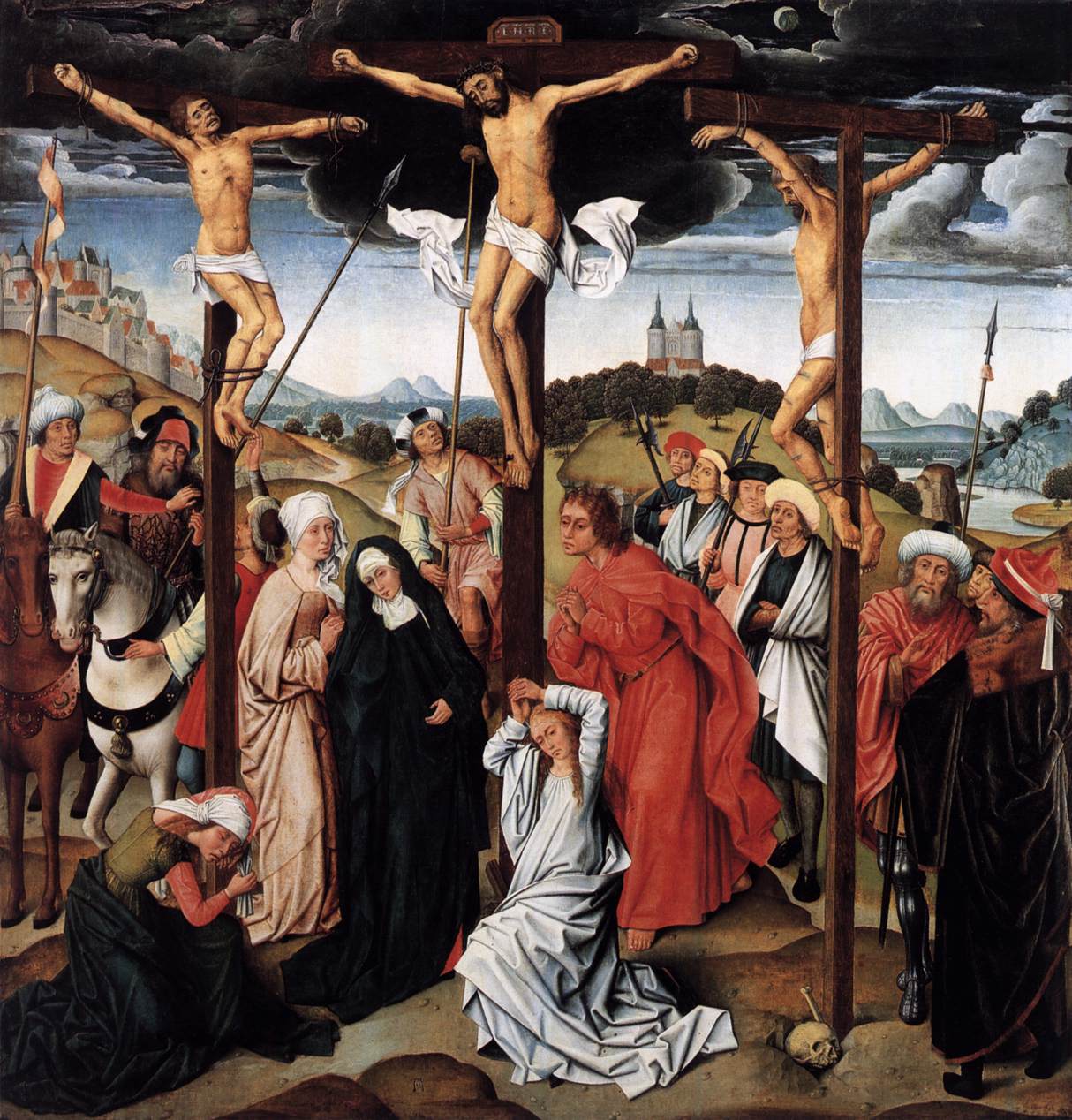Description
The painting Crucifixion of Christ by the Master of the Legend of Saint Catherine is a masterpiece of sacred art from the 15th century. This work stands out for its Gothic artistic style, which is characterized by the representation of elongated and stylized figures, with minute details and great attention to religious symbolism.
The composition of the work is impressive, as the artist manages to convey the intensity of the moment when Christ is crucified. The figure of Christ is the focal point of the work, with his body extended and his head tilted to the side, suggesting his agony. The characters that surround the cross, such as the Virgin Mary and Saint John, are represented with great emotion, which adds drama to the scene.
The use of color in the work is also very interesting. The artist uses dark and gloomy tones to depict the moment of the crucifixion, which creates an atmosphere of sadness and despair. However, the figure of Christ is illuminated by a golden light, symbolizing his divinity and his triumph over death.
The history of the Crucifixion of Christ painting is somewhat unknown. It is believed that it was created in the 15th century in the city of Cologne, Germany, and that it was part of an altarpiece in the church of Saint Catherine. The work was rediscovered in the 19th century and since then it has been the object of study and admiration by experts in sacred art.
In summary, the painting Crucifixion of Christ by the Master of the Legend of Saint Catherine is an impressive work of art that stands out for its Gothic style, its dramatic composition, its use of color and its religious symbolism. This work is a sample of the talent and mastery of the artists of the fifteenth century and continues to be a source of inspiration for lovers of sacred art throughout the world.

